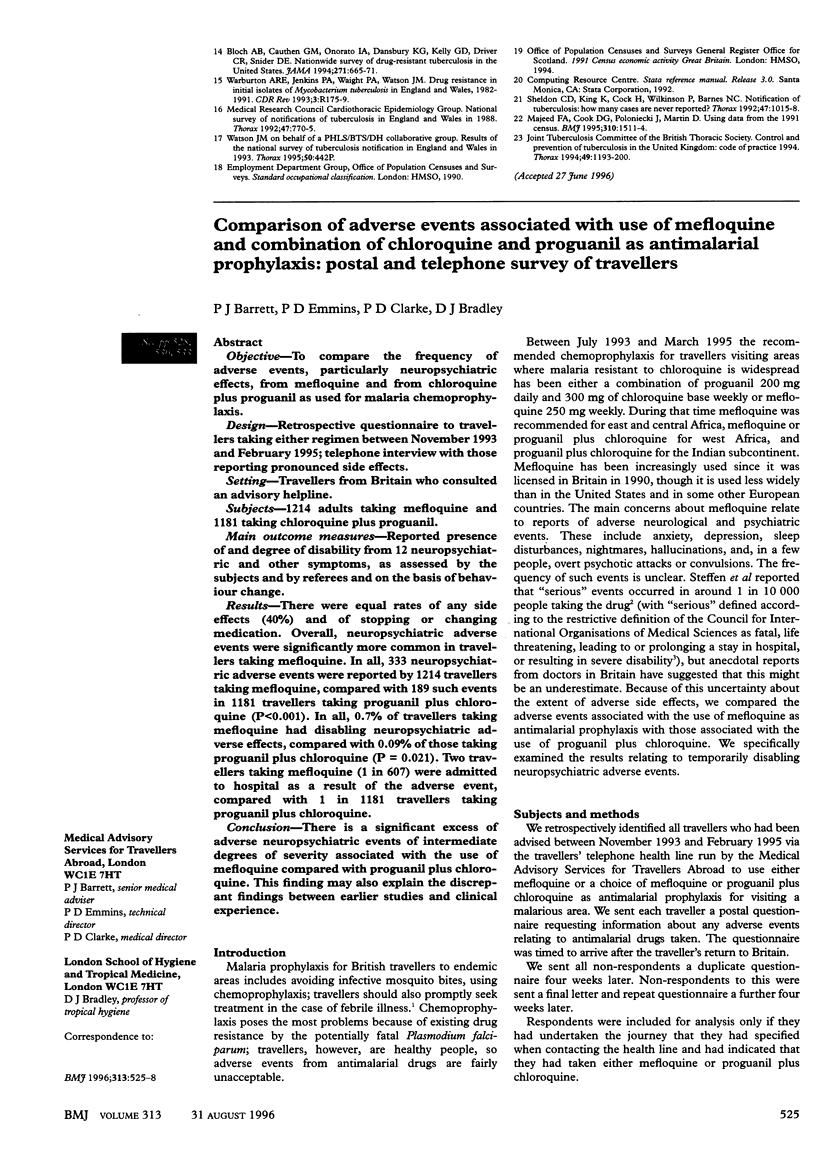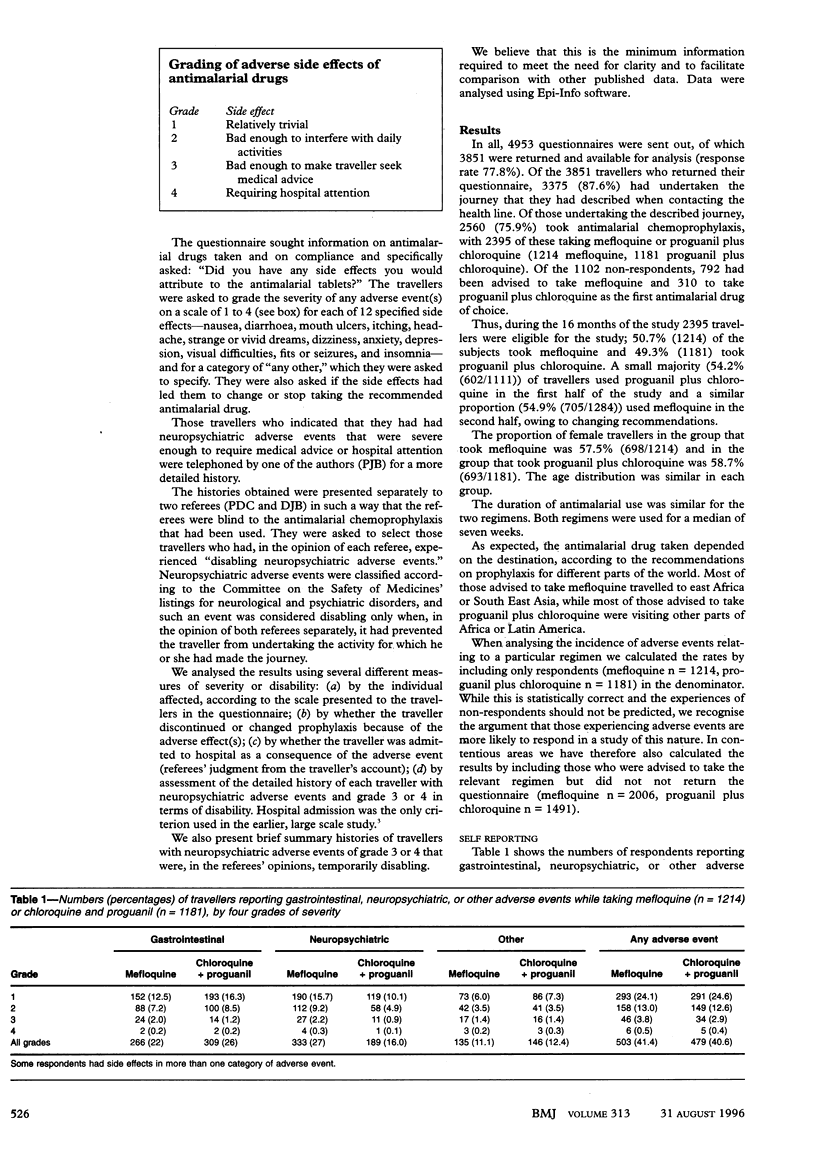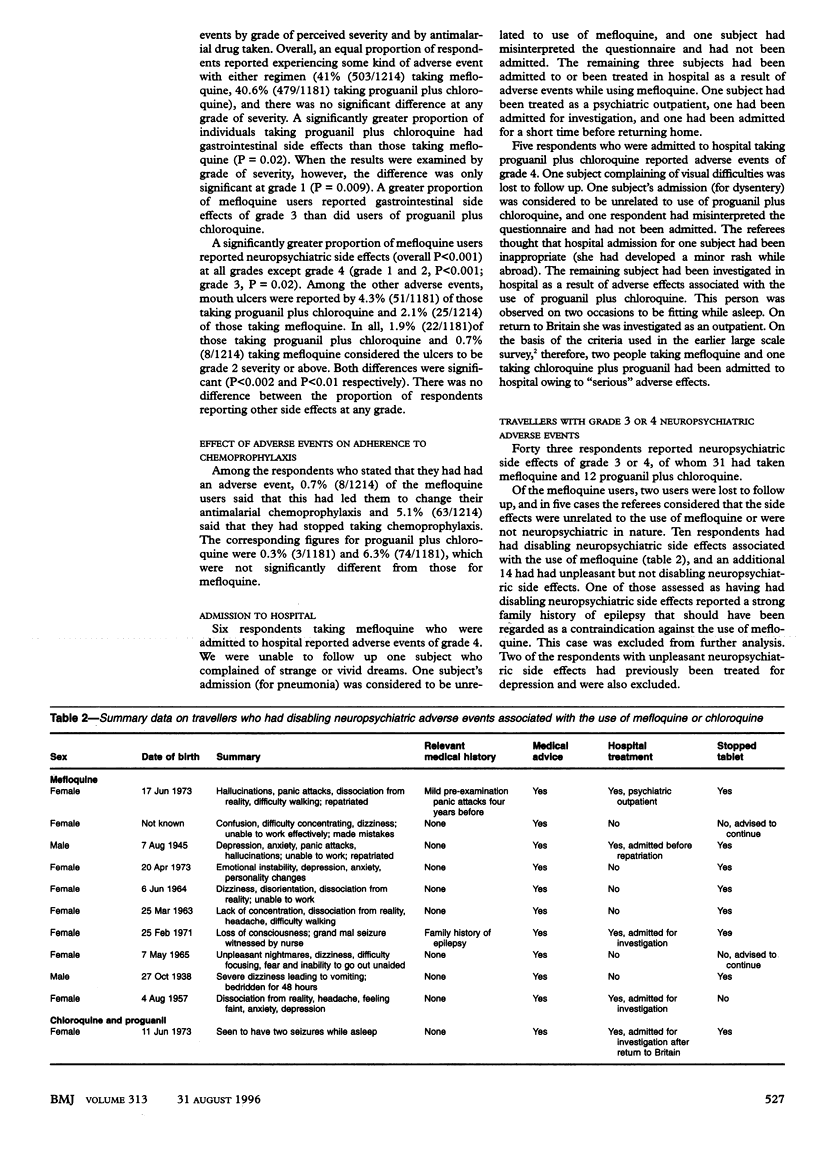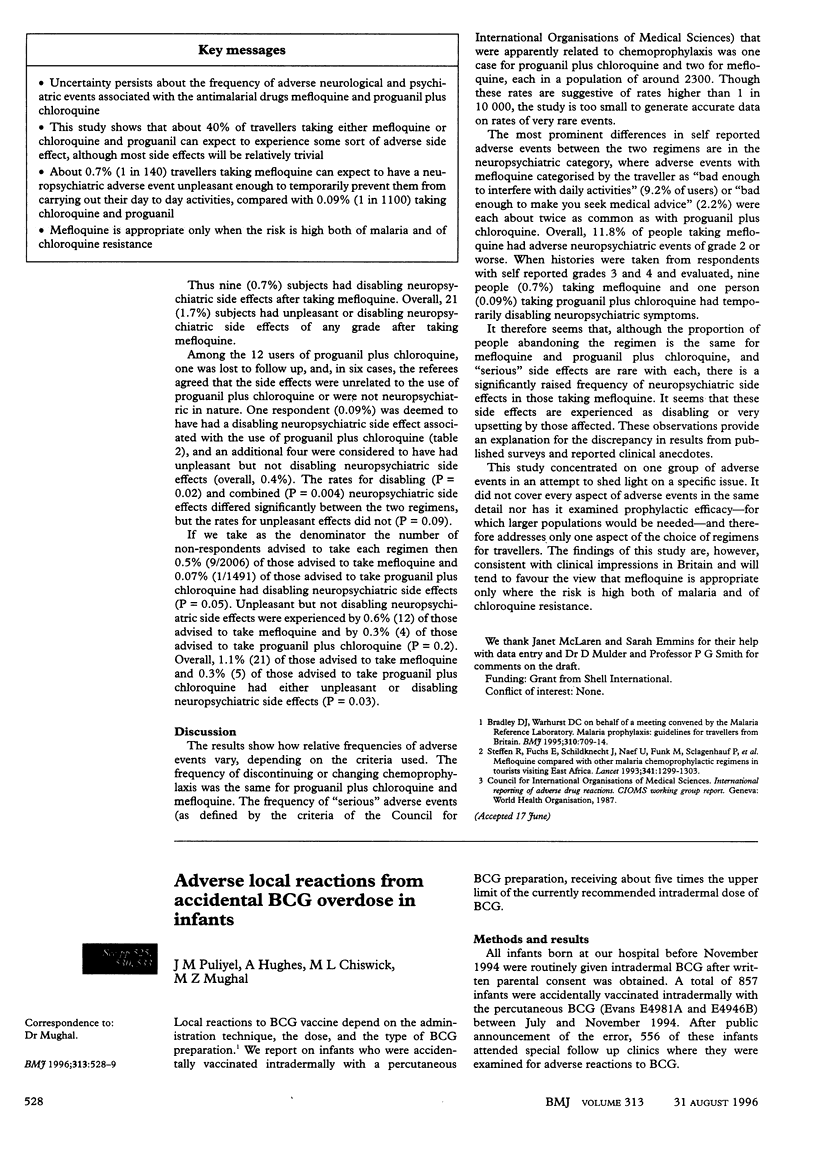Abstract
OBJECTIVE: To compare the frequency of adverse events, particularly neuropsychiatric effects, from mefloquine and from chloroquine plus proguanil as used for malaria chemoprophylaxis. DESIGN: Retrospective questionnaire to travellers taking either regimen between November 1993 and February 1995; telephone interview with those reporting pronounced side effects. SETTING: Travellers from Britain who consulted an advisory helpline. SUBJECTS: 1214 adults taking mefloquine and 1181 taking chloroquine plus proguanil. MAIN OUTCOME MEASURES: Reported presence of and degree of disability from 12 neuropsychiatric and other symptoms, as assessed by the subjects and by referees and on the basis of behaviour change. RESULTS: There were equal rates of any side effects (40%) and of stopping or changing medication. Overall, neuropsychiatric adverse events were significantly more common in travellers taking mefloquine. In all, 333 neuropsychiatric adverse events were reported by 1214 travellers taking mefloquine, compared with 189 such events in 1181 travellers taking proguanil plus chloroquine (P < 0.001). In all, 0.7% of travellers taking mefloquine had disabling neuropsychiatric adverse effects, compared with 0.09% of those taking proguanil plus chloroquine (P = 0.021). Two travellers taking mefloquine (1 in 607) were admitted to hospital as a result of the adverse event, compared with 1 in 1181 travellers taking proguanil plus chloroquine. CONCLUSION: There is a significant excess of adverse neuropsychiatric events of intermediate degrees of severity associated with the use of mefloquine compared with proguanil plus chloroquine. This finding may also explain the discrepant findings between earlier studies and clinical experience.
Full text
PDF



Selected References
These references are in PubMed. This may not be the complete list of references from this article.
- Bradley D. J., Warhurst D. C. Malaria prophylaxis: guidelines for travellers from Britain. Malaria Reference Laboratory of the Public Health Laboratory Service, London. BMJ. 1995 Mar 18;310(6981):709–714. doi: 10.1136/bmj.310.6981.709. [DOI] [PMC free article] [PubMed] [Google Scholar]
- Steffen R., Fuchs E., Schildknecht J., Naef U., Funk M., Schlagenhauf P., Phillips-Howard P., Nevill C., Stürchler D. Mefloquine compared with other malaria chemoprophylactic regimens in tourists visiting east Africa. Lancet. 1993 May 22;341(8856):1299–1303. doi: 10.1016/0140-6736(93)90814-w. [DOI] [PubMed] [Google Scholar]


